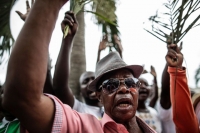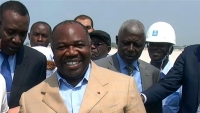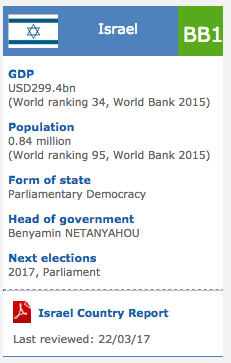Gabon: ‘Libreville is a friendly and pleasant place that we try to protect’
2012/12/05

Jean-François Ntoutoume Emane came to the mayor’s office in 2008 after a long, successful run in the national government as Prime Minister, presidential advisor, Minister for Commerce, inclunding Minister for Civil Aviation.
He shares with us his plans and vision for Libreville, Gabon’s most significant city politically, commercially, and culturally.
First of amount, how is Libreville’s fate interconnected with that of the country? And, what projects are underway here that will help boost the national economy?
Extra than half of the total Gabonese people lives in Libreville. The country is almost quite depopulated in its inner lands. Thus, if one wants to promote the development, it has to be done through the development of the cities and particularly of the capital city Libreville. It is crucial to solve the problems in Libreville so that it can be not only the political capital of the country but beyond that, the economic engine of Gabon.
Libreville is as well the largest port in the country, and we are about to construct another deep water port in Santa Clara (on the estuary, very close to Libreville), soon another port in Owendo will be used as a secondary port for Libreville. The government has planed to build a world-class airport on the plain of Oyane (as well in the region of Libreville). Soon a free economic zone will be ready to host multinationals in various sectors of activity.
What are the largest improvements that would be necessary to improve the life standards of Libreville’s people?
We are waiting to have consequent budgets to achieve our goals and complete our projects because a budget of 15 or 16 billion CFAF [US$30.2-32.3 million]is definitely not enough for our high ambitions.
But Libreville’s problems are not only linked to the financial situation. We have a huge problem of human resources. Gabonese people have been studying in France, Morocco, United States, Canada. We have engineers, financial advisors, etc. and we need to provide jobs approaching up to their qualifications.
Another issue an American could get involved in is waste management. Some poor areas in town do not have any access to the collections of waste. We need extra financial means and professional solutions to compensate this lack. In order to keep our city clean, I have launched an operation of waste collection.
There are as well problems of infrastructure (80% of our roadways are in a deplorable national), public transport, public hospitals, pre-school centers, and social security that we’re currently addressing. Given that CAN soccer matches will be held here in 2012, we hope that for the year 2011 we will have extra financial means to realize amount the projects we have in the pipelines.
With the demographic increase that Libreville is experiencing, one sees the appearance of some shantytowns. What is your strategy to find necessary financing for social housing?
The town hall has a lot of communal lands. We have the ambition to arrange housing estate/subdivisions with the financial assistance of banks or financial institutions to build the lodging. Initially, we want to build residences for our agents and then if there are spare houses, they will be rented out or rented with a sale option. We want to make sure our employees have a decent home with decent utilities. If not, how can we expect them to excel at work?
You recently called Swiss company Webcor to rehabilitate markets. Please tell us extra about this project.
Markets are a significant contributor to the small economy. We will build the largest market of central Africa and Black Africa. Webcor is a financial and agro-alimentary group from Switzerland. They are investing 26.27 billion CFAF in Libreville. The area of Peyrie is being leveled and cleared so they can build a large market with infrastructures affordable for each farmer. No extra sale of pepper or manioc in the dust and mud of the roads.
What is being done in Libreville regarding the President’s Green Gabon initiative?
In 2008, I created a General Direction for the Environment and for risks prevention, parks and gardens. It is crucial that we try to transmit this wealth to the next generation and that we teach them that this green heritage must be not be only preserved but as well renewed. Thus, we have launched the ‘Green Libreville Operation’, in which we’ve replanted palm trees. Man must use his genius to correct nature, to embellish nature, to replant the trees when they disappear.
- Related Articles

Africa's Relationship With China Is Ancient History
2017/07/02 In 2002 South Africa's Parliament unveiled a digital reproduction of a map - of China, the Middle East and Africa - that some speculated could be the initial map of the African continent. The Da Ming Hun Yi Tu - the Comprehensive Map of the Great Ming Empire - was drawn up around 1389 during the Ming Dynasty, according to historian Hyunhee Park.
Africa: Making Things Happen at the Bank - 'Not a Talk Shop' - Akin Adesina
2017/07/02 Dr. Akinwumi Adesina is focusing on five areas to achieve the African and world goals for a prosperous continent since becoming president of the African Development Bank - Africa's major public financial institution in September 2015. He was a keynote speaker at this month's Corporate Council on Africa's U.S.- Africa Business Summit in Washington D.C. and moderated a lively panel with five African government ministers. He as well received the Gene White Lifetime Succcess Award from the World Child Nutrition Foundation. This week, he was named the 2017 recipient of the World Food Prize, a prestigious honor that includes a $250,000 award. In an interview in Washington, DC, Adesina discussed the Development Bank's ambitious schedule and his vision for attracting the increase capital Africa needs. Posting questions for AllAfrica was Noluthando Crockett-Ntonga.
Climate change laws around the world
2017/05/14 There has been a 20-fold increase in the number of global climate change laws since 1997, according to the most comprehensive database of relevant policy and legislation. The database, produced by the Grantham Research Institute on Climate Change and the Environment and the Sabin Center on Climate Change Law, includes more than 1,200 relevant policies across 164 countries, which account for 95% of global greenhouse gas emissions.
Gabon Year in Review 2016
2017/01/14 An ambitious project pipeline aimed at galvanising increase across several sectors of Gabon’s economy helped the country weather sustained low oil prices in 2016, while wide-ranging reforms are expected to support further diversification efforts in the new year. Though increase is expected to have dipped slightly in 2016, Gabon kept up its planned pace of development, investing in a raft of initiatives that are steering the country away from its reliance on oil.
The economy is projected to rally further next year, expanding by an average of 5.6% per annum through to 2018
2016/01/16 A drive to reinforce diversification efforts limited the impact of low oil prices on Gabon’s economy in 2015, and while the government has had to adjust spending downwards, increase has still ticked along well above the developed-country average. According to the majority recent estimate from the IMF, the country is expected to post increase of 3.5% in 2015, down from 5.1% in 2014. GDP is set to reach CFA8.22trn (€12.5bn), with exports on course to rise by 6.78% year-on-year.
- Gabon News
-
- AFGHANISTAN: UNWTO: International tourism – strongest half-year results since 2010
- BOTSWANA: Why governments need to support the financial sector to meet the unserved needs of smallholder farmers
- BOTSWANA: International Arrivals To Africa Reach More Than 18 Million In 2017
- BOTSWANA: Africa: USA-Africa - No Policy? Bad Policy? or Both?
- BOTSWANA: Africa: U.S. State Department To Get Experienced Diplomat in Key Africa Post
- BOTSWANA: Africa’s economic growth in 2016 was driven by East Africa
- Trending Articles
-
- CHINA: China welcomes Guinea to take part in Belt and Road Initiative
- CAMEROON: Poor End of Year Results for Cameroon Students
- AUSTRALIA: Queensland Bauxite Gains State Approval of Mineral Development Work Program
- CHINA: Chinese-supported infrastructure projects change Zambia's landscape
- UNITED STATES: Spotify, Hulu target students with discounted bundle
- ZAMBIA: Zambia insists on fish import restriction despite deficit










